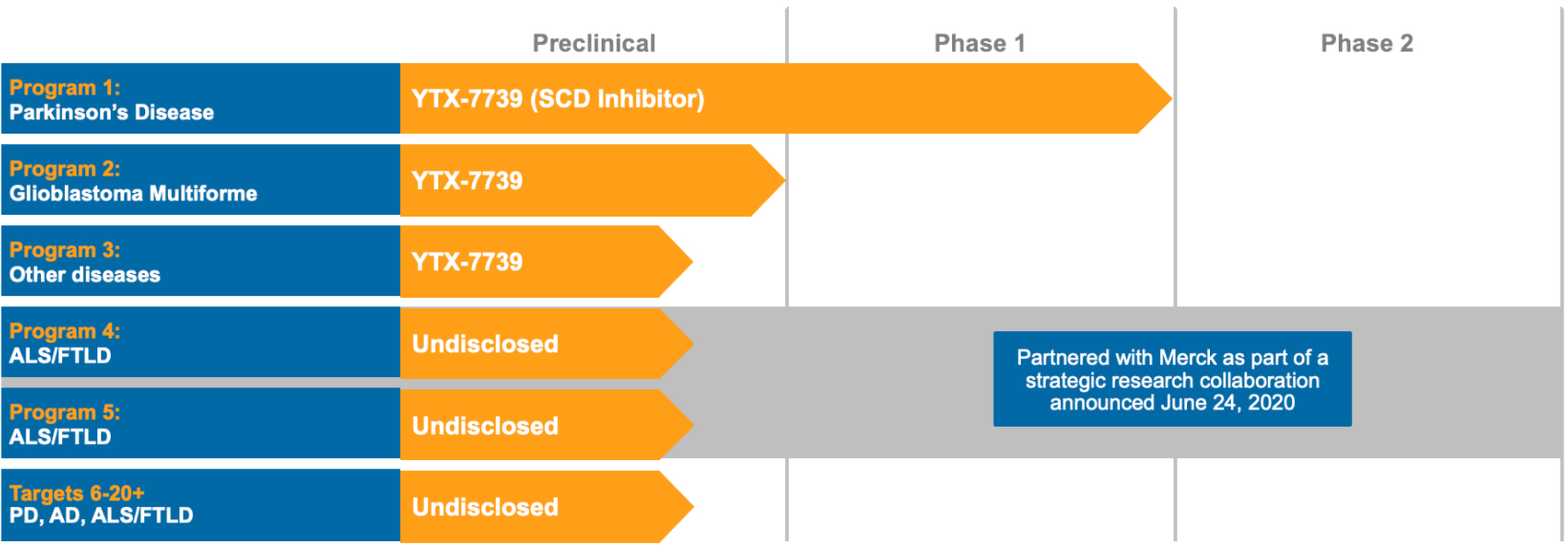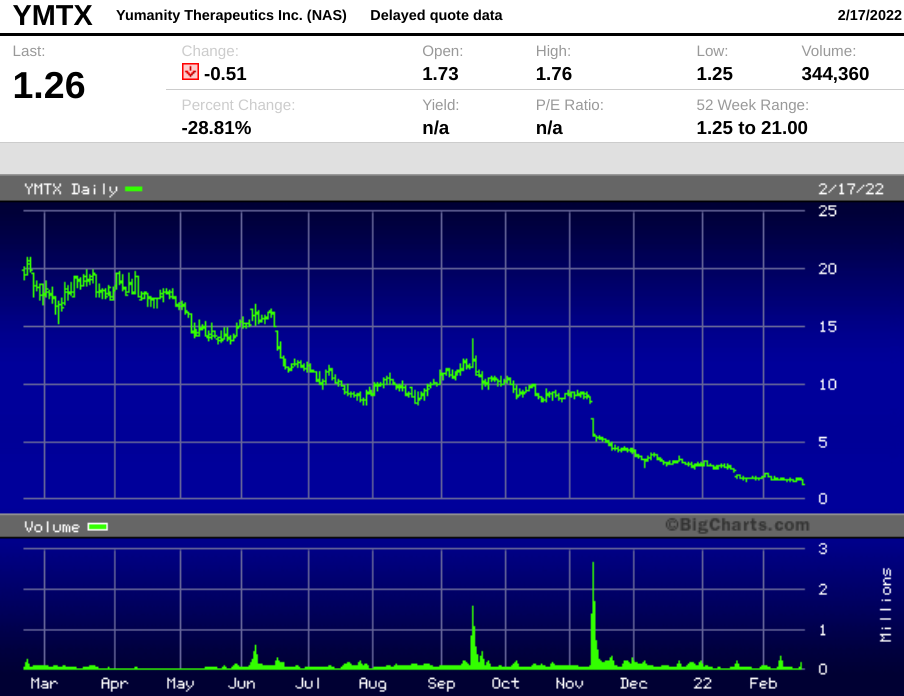Yumanity Therapeutics To Cut 60% of Staff, Explore Strategic Options
Beleaguered biotech Yumanity Therapeutics YMTX announced Thursday morning that it would lay off about 26 of its 44 employees. This 60% reduction in force is the latest blow for the once-promising developer of novel therapies for neurodegenerative diseases.
Concurrent with the announcement of layoffs, Yumanity said that it has engaged investment bank HC Wainwright to "explore strategic alternatives."
FDA clinical hold
In January 2022, the FDA informed Yumanity that it was placing a partial hold on the multidose clinical trials of the company's lead candidate, YTX-7739, which is being studied for the treatment of Parkinson’s disease. The FDA permitted Yumanity to continue with its planned single dose trial.
Pipeline
YTX-7739 is also being developed as a potential treatment for glioblastoma multiforme. Yumanity has preclinical programs in Alzheimer's disease, amyotrophic lateral sclerosis (ALS) and frontotemporal lobar degeneration (FTLD).

Image source: Yumanity Therapeutics
Investment thesis

Image source: BigCharts
There's no sugarcoating the performance of Yumanity's stock since the company was reverse-merged into Proteostasis Therapeutics in December 2020. It's been a long, disappointing ride for shareholders.
Yumanity was founded with much fanfare in 2014 by a highly regarded trio:
- Tony Coles, MD — CEO of Onyx Pharmaceuticals, which Amgen AMGN acquired for $9.7 billion
- Susan Lindquist, PhD — founder of FoldRx, which Pfizer PFE acquired for an undisclosed sum
- Ken Rhodes, PhD — VP of Neurology Discovery at Biogen BIIB
Coles resigned as CEO in 2019 but remains Chairman of the Board; Lindquist sadly died of cancer in 2016; and Rhodes is currently VP of Rare Neurology and Discovery Biology at Pfizer.
The stock tumbled 29% on Thursday on news of the layoffs. At the current price of $1.26, Yumanity's market capitalization is a mere $13 million on The Nasdaq Stock Market.
We see three reasons to be even remotely optimistic:
- In June 2020, Merck MRK licensed two of Yumanity's programs in ALS and FTLD via a biobucks deal that could be worth as much as $500 million plus royalties to Yumanity.
- The market for neurodegenerative disease therapies is immense and only getting larger. Over 60 million people suffer worldwide from diseases affecting the brain and nervous system, and that number is expected to double every 20 years. Global costs for managing these diseases are currently estimated at $818 billion and are expected to breach $1 trillion by 2030.
- The FDA is permitting the single dose trial of the company's lead compound to proceed. Companies that can show even modest benefit for these brutal diseases will be given every opportunity to prove it in the clinic.
We caution that this would be highly speculative play for any investor, as it's essentially a call option on HC Wainwright's ability to attract a potential suitor.
_____
Source: Equities News



